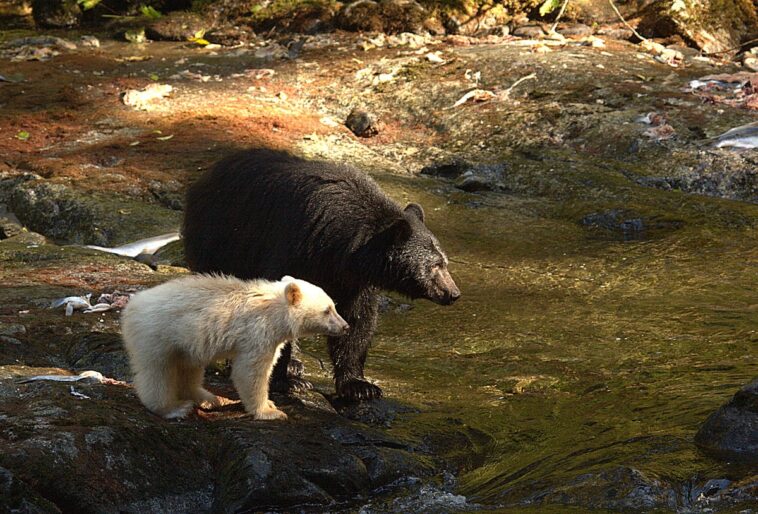You’re probably aware that rare Spirit Bears are in B.C. are protected from hunters. But to improve their odds of survival, black bears are now being protected too.
Why is that? It turns out, scientists have found, that black bears and the white bears known as Spirit Bears are the same species.
“It is impossible to know which black bears carry the white gene,” said a recent press release from the Kitasoo Xai’xais and Gitga’at First Nations, in whose traditional territories many spirit bears live.
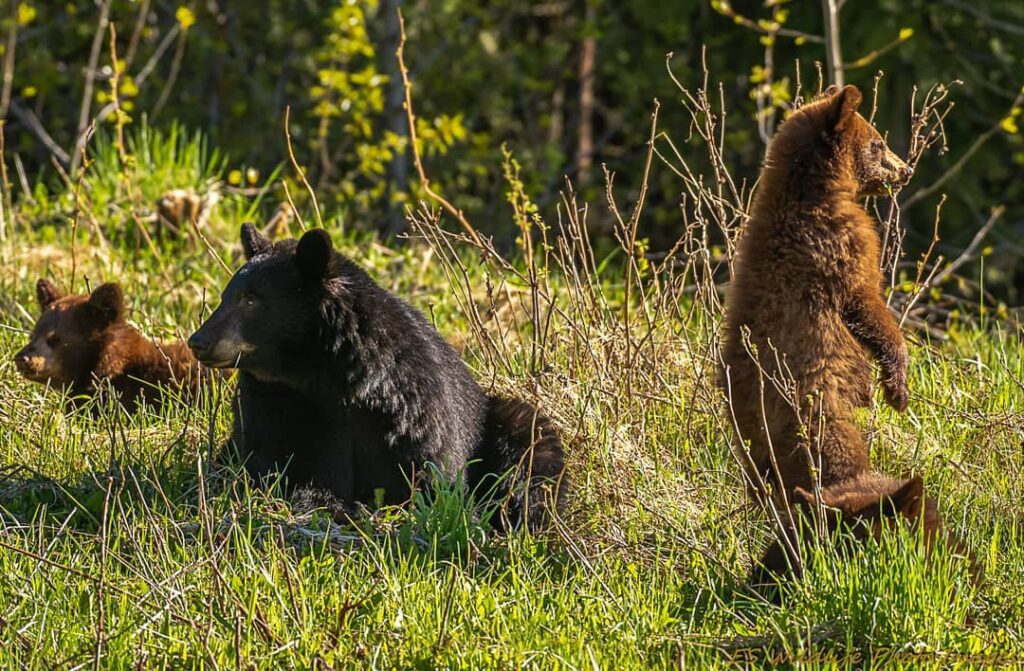
That’s why B.C. is now banning the hunting of black bears in parts of coastal B.C. The ban, which came in to effect July 1, was made in order to help protect Spirit Bears – whose colour is caused by a gene variation similar to the one causing red hair in people, and blond coats in Labrador retriever dogs.
The ban was developed over years between the province and the Kitasoo Xai’xais and Gitga’at First Nations, and announced with B.C.’s hunting and trapping regulations earlier this month. It goes until June 30 next year.
Some black bears on the coast carry a gene for white coats-and if they mate with another black bear that also has the gene, chances are that one of their cubs will be white.
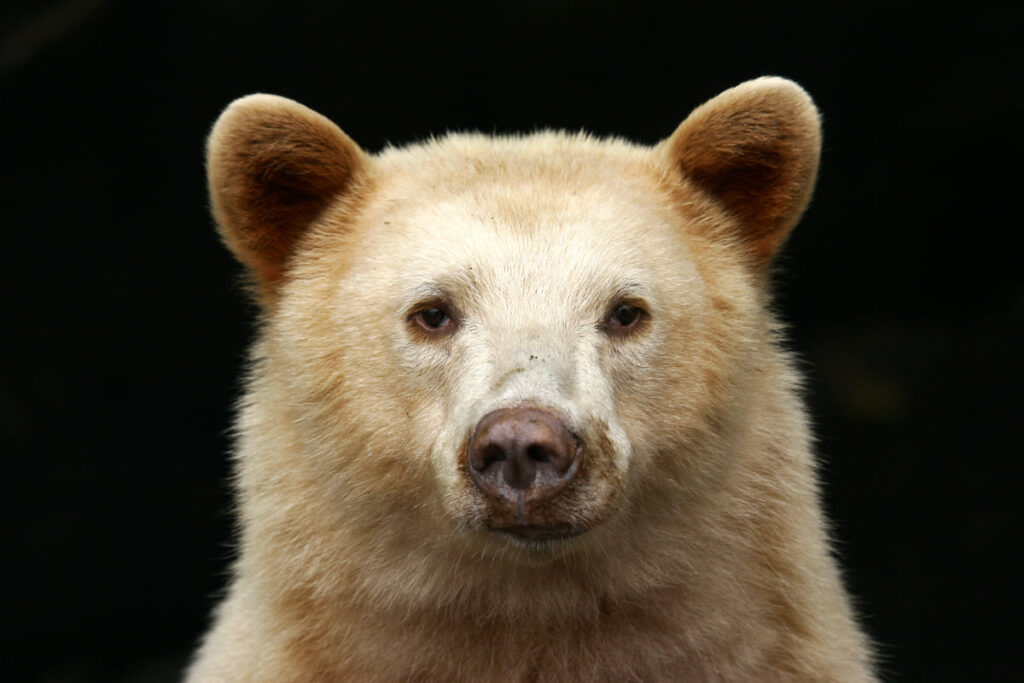
The gene for white coats is recessive. That means other colours, including black, cinnamon and brown, are dominant. A white bear will be born only if it inherits a white-coat gene from both of its parents.
“Every time you shoot a black bear in this region, it could be carrying the recessive copy of the gene that produces the spirit bear,” said Chief Councillor Doug Neasloss of the Kitasoo Xai’xais First Nation in Klemtu in the statement.
Approximately 1 in 10 bears in Kitasoo Xai’xais and Gitga’at territories, near the communities of Klemtu and Hartley Bay, are white, said the statement.
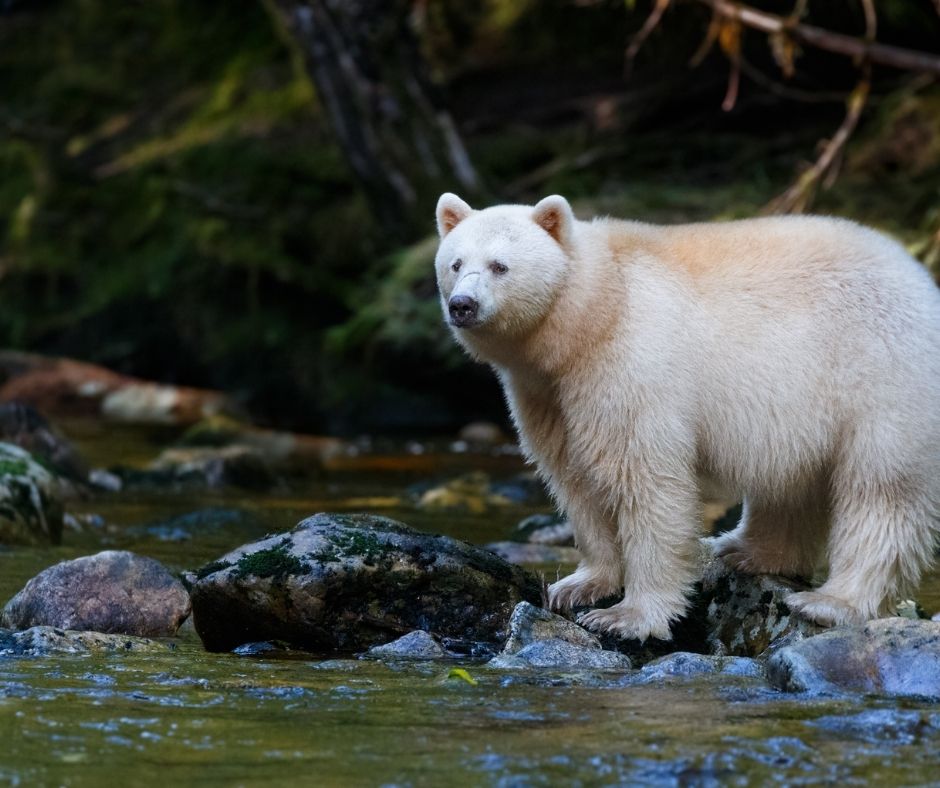
The gene behind the colour of Spirit Bears is Mc1r, well-known for human red-heads and blond Labrador retrievers, according to an entry in the Canadian Encyclopedia by Dr. Christina Service, a wildlife biologist with the KXSA and adjunct assistant professor in the School of Environmental Studies at the University of Victoria.
The black bear hunting ban covers 8,158 square kilometers of Kitasoo Xai’xais and Gitga’at First Nation territories, about 13% of the Great Bear Rainforest.
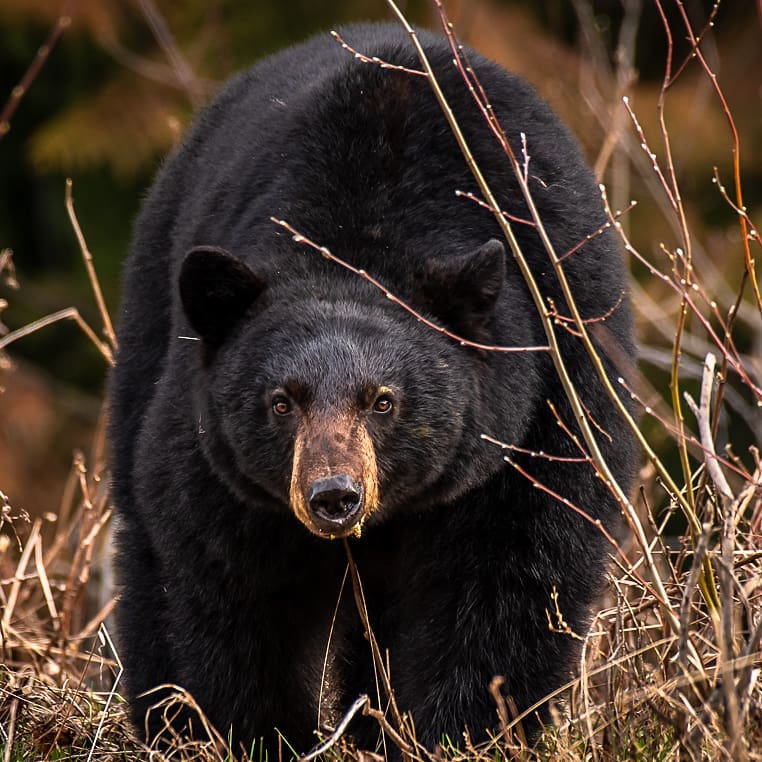
“There was a lot of work done to get to this point, and it has been a long time coming,” said Marven Robinson, elected councilor of the Gitga’at Nation, in the First Nations statement.
He said the Spirit Bear, called moksgmol for “white bear” in Tsimshian, is “highly revered by the Gitga’at people.”
“The spirit bear represents a unique evolutionary lineage of black bears and, alarmingly, recent research shows these bears are even rarer than previously believed,” said Service, who has spent years studying Spirit Bears.
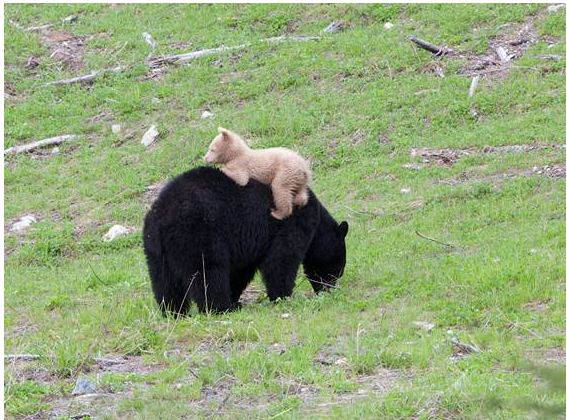
Spirit Bears have long featured in First Nations oral history, but were only identified by modern science in 1905.
American zoologist William Hornaday described the white bears in 1905, wrongly considered them a separate species, and named them after Frank Kermode, then the curator of the Provincial Museum in Victoria..
Paul Nicklen, a well-known Canadian conservationist and wildlife photographer, who has documented the bears, applauded the ban.
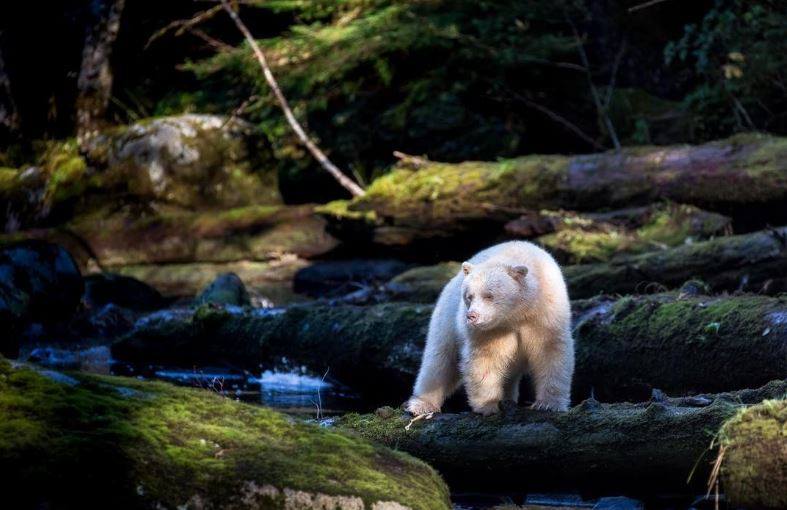
“It is this type of leadership and forward thinking that is needed if we are truly going to protect large tracts of wilderness and its wild inhabitants,” Nicklen posted on Facebook, with photos of Spirit Bears taken in the Kitasso Xai’xais and Gitg’at territories.
Tourism inspired by the Spirit Bear supports bear-viewing operations run by both nations, and about 18 commercial operations in the area, noted the First Nations statement.




